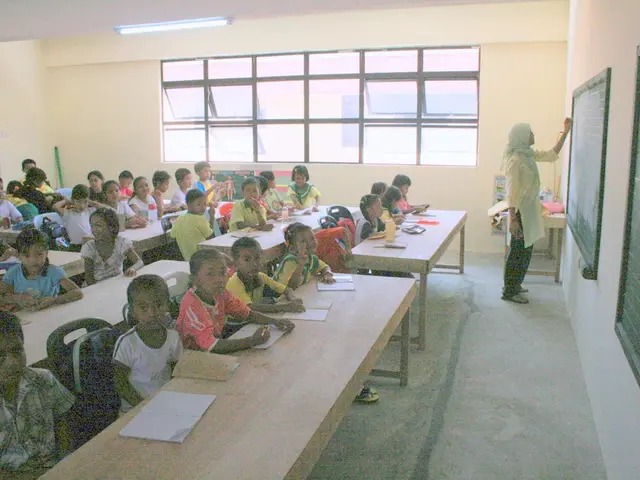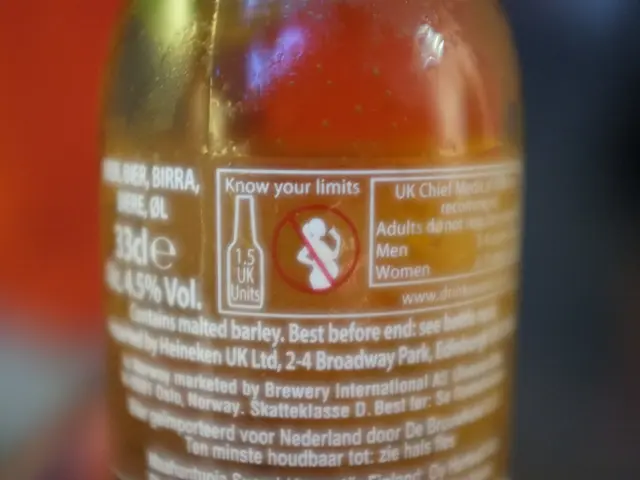Revised Article:
Baby's Untimely Death: Mother Faces Lifetime Imprisonment in Rostock
infant's dehydration left unchecked: mother convicted of murder - Confirmation of Guilt: Mother Negligently Allows Infant to Suffer from Dehydration, Resulting in Baby's Death
You know the drill – a mother's heartbreaking story unfolds in Rostock, Germany. In a heart-wrenching turn of events, a 26-year-old mother, charged with negligent manslaughter of her one-year-old son, now faces life imprisonment. The crippling verdict was handed down by the Rostock Regional Court in December 2023, and the Federal Court of Justice has since stood by it.
The mother's actions have left many questioning justice and the limits of negligence. The prosecution pushed for a life sentence, while the defense argued for a term not exceeding eight years. However, the court maintained its decision after a review of the case.
The court emphasized two critical reasons for the life sentence: the infant's tender age, about 13 months, and the prolonged hours the baby was left strapped in a child seat, sans hydration. It's a chilling revelation that the mother herself admitted fully responsible for her son's tragic end.
A Closer Look at the Case
The Federal Court of Justice criticized the initial verdict for overlooking the mother's psychological instability resulting from a borderline personality disorder. However, the current judge deemed the disorder not causally connected to the crime.
What culminated in the baby's death remains a tragic tale. The mother abandoned her son, suffering from severe diarrhea, in a restrained car seat while she spent the evening and night with an acquaintance. The child ultimately perished as a result of dehydration and related complications.
- Mother of a one-year-old
- Life Imprisonment
- Rostock
- Infant
- Negligent Manslaughter
- Regional Court
- Federal Court of Justice
Germany's Criminal Justice System: A Deeper Dive
As we delve into the nuances of Germany's criminal justice system, it's crucial to know that life imprisonment for negligent killing is uncommon. However, such severe penalties are typical for intentional murder or manslaughter. For a mother found guilty of negligent manslaughter resulting in death, the maximum sentence is usually five years in prison. Life imprisonment would only be imposed if the act was reclassified as intentional murder under specific, extraordinary circumstances. Below, we'll outline the key legal and factual factors considered in such cases:
Legal Framework
- Intent and Negligence
- Negligent Manslaughter
- Intentional Manslaughter
- Murder
- Severity of Negligence
- Evidence of Intent or Premeditation
- Culpability and Circumstances
Sentencing Factors
- Nature of the Offense
- Degree of Suffering
- Prior History
- Socioeconomic and Mental Health Factors
- Legal Representation and Procedural Fairness
Ultimately, life imprisonment for a mother’s negligent killing of her child in Germany is highly unlikely unless the act is determined to be intentional murder or manslaughter with exceptional severity. In most cases involving negligence, the maximum penalty is five years’ imprisonment. If a life sentence is reported in such a case in Rostock, it would require a reclassification to intentional killing, supported by strong evidence of intent or aggravating circumstances. Stay tuned for more updates on this heart-rending story of justice and accountability.
- In the context of Germany's criminal justice system, the unusual sentence of life imprisonment for a mother accused of negligent manslaughter of her one-year-old son may not be imposed without reclassifying the act as intentional murder or manslaughter under exceptional circumstances.
- The mother's sentence, if modified to include fitness-and-exercise or mental-health programs, could potentially contribute to her rehabilitation and reintegration into society, promoting health-and-wellness for all parties involved. A community policy that offers vocational training for inmates, particularly in areas like science and health-and-wellness, could provide the mother with a skillset to improve her chances of successful reintegration upon release.








